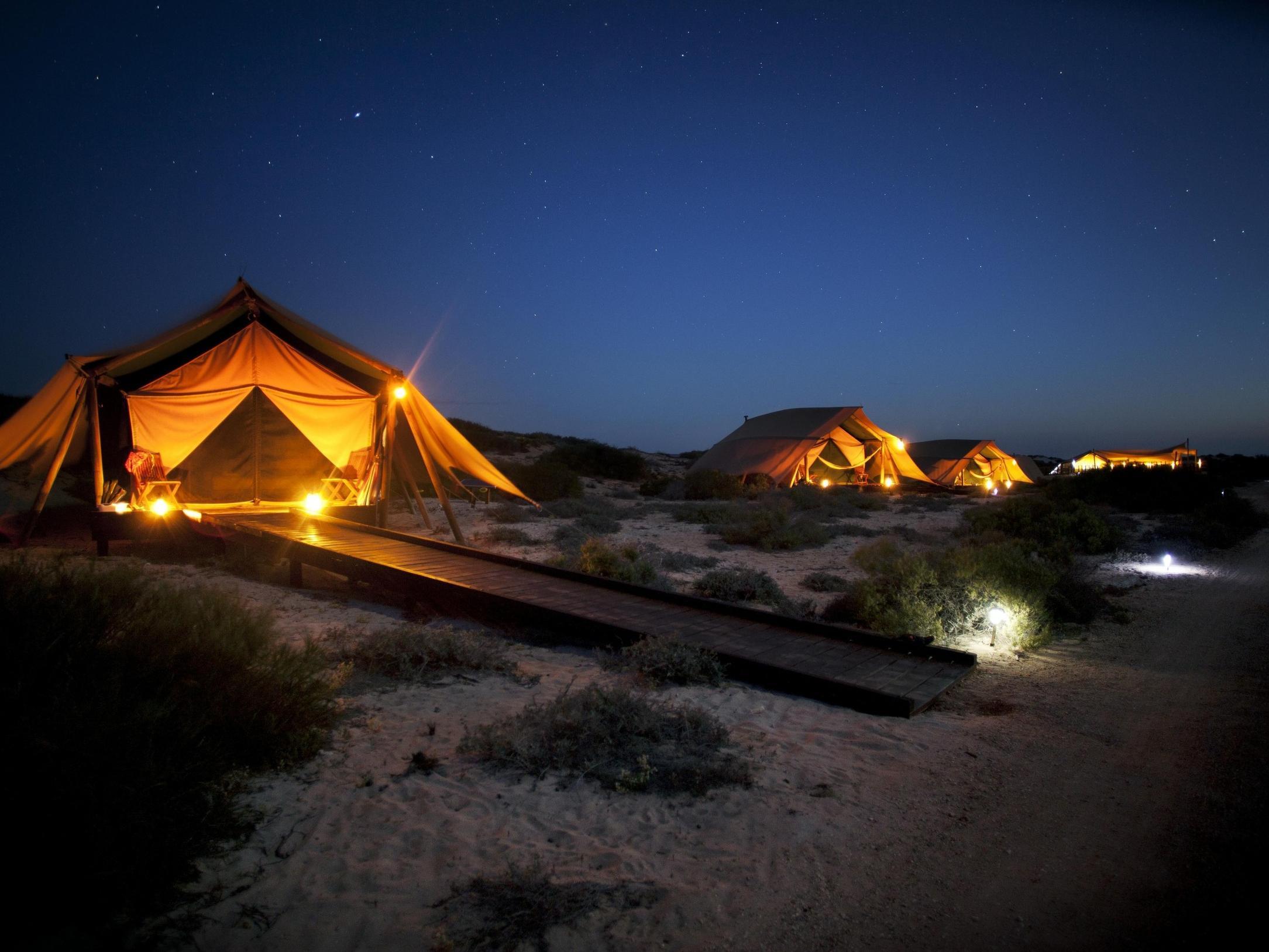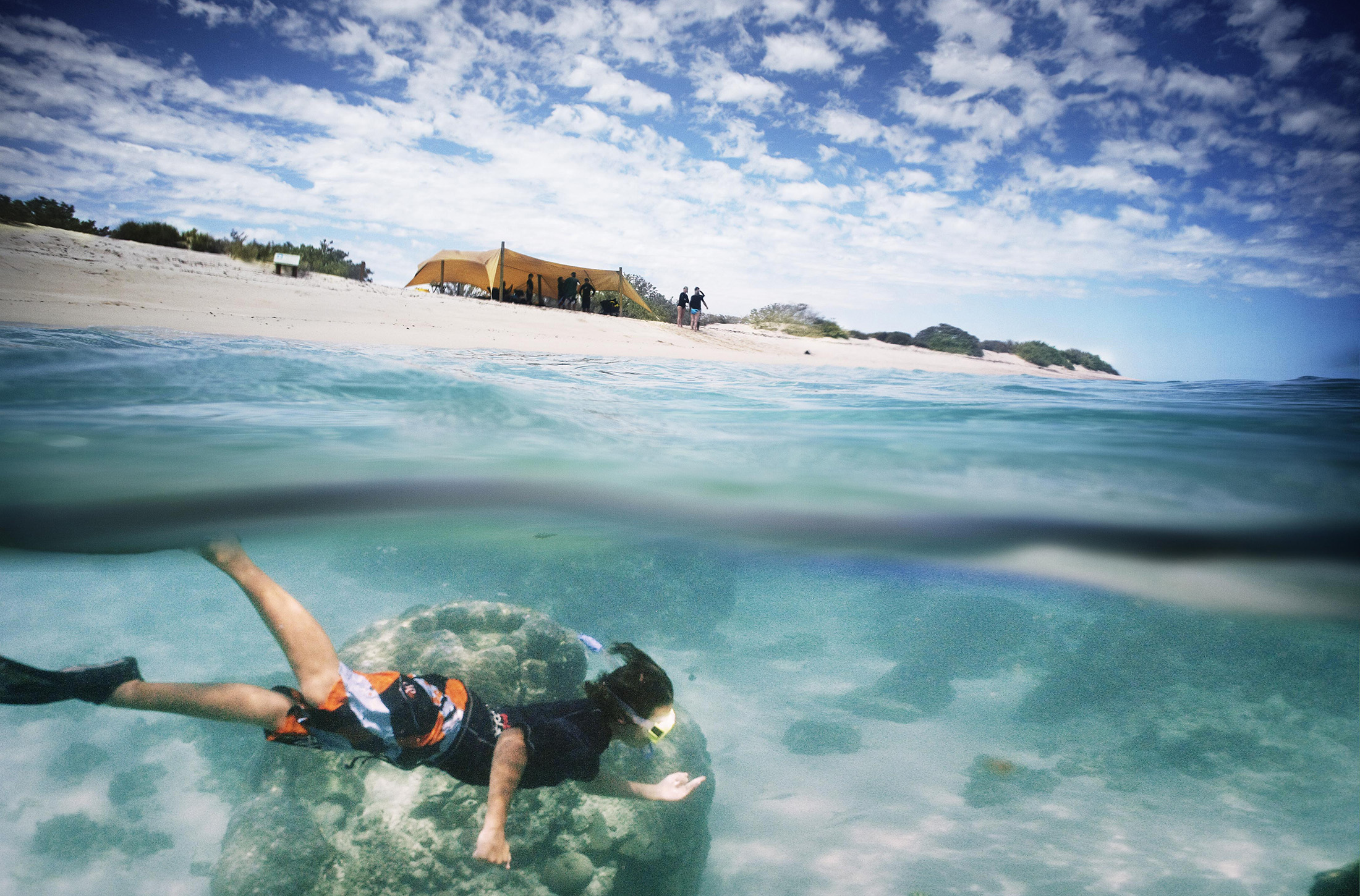 |
|||||||
|
|
||||||
|
|
||||||
A dream proposal |
|
| By Lucía Ferrer | |
|
|
|
|
|
|
.jpg) |
|
The experience consists of a five-day safari that perfectly combines natural life in the wilderness of the National Park - with its wonderful beaches and fauna - and the sophisticated culinary proposals of chef Peter Evans. Each day, guests fish their own dinner, accompanied by Evans, using different techniques depending on the species: local trout, emperor, mackerel or snapper. 500 species of fish, 600 of mollusks -some never seen in the western world- and 250 types of coral, to the delight of the spectator in the reef located only 100 meters from the coast. These are real lessons in nature and fishing in action at the Ningaloo Barrier Reef. This learning is combined with practical cooking classes, in which the techniques for cleaning the fish and different recipes are learned. The daily dinner is a real feast for the senses, guided by Peter Evans' endless and curious recipe book. |
|
|
|
After dinner, the spectacle will be in the sky. The region is known as one of the best places in the world to see the Milky Way. Lying in a hammock next to the tent - or in the company of the guide, who will point out the constellations - the guest can enjoy an unforgettable digestion in the company of millions of stars. You will rest in luxurious tents, perfectly equipped, in the middle of nature, surrounded by white sand dunes and located on the shores of the Indian Ocean. This is the new style of "Wild Bush Luxury", which combines the rustic and natural with the best quality of facilities and services. Top quality cotton sheets and towels, eco-friendly facilities, solar energy, locally made herbal soaps and shampoos and services that protect the park environment. A maximum of 16 people in total per safari is allowed for a quiet experience in the interior of Western Australia's Cape Range National Park. |
|
.jpg) |
|
|
|
The 260-kilometre-long Ningaloo coastline, home to Australia's largest coral reef, was declared a UNESCO World Heritage Site in 2011. It is famous for the peaceful whale shark populations that feed in its waters from March to June - at a point on one of the migratory routes used by dolphins, rays, whales and turtles in the winter months - and for the nesting of loggerhead, caguma and hawksbill turtles. The experience organized to contemplate whale sharks from the water begins in a 20-meter-long boat - the "Latitude 22" - which sails to the reef areas where whale sharks are present, an area previously located from the air by a spotter plane. Once in the area, the priority is to dive as long as possible to see the whale sharks.
The program of activities in the Sal Salis area is completed with kayaking sessions, snorkeling, walks around the camp and other interesting sports options. The kayak is the perfect boat to explore the reef with minimal interference with the ecosystem. Guided snorkel kayaks also depart further from the shore, where they anchor in the sand and then dive into some of the deeper lagoons. The Blue Lagoon is one of the best dive sites, where you can see soft corals, sponges, wobbegong sharks and hundreds of fish. In terms of fishing, Ningaloo Reef is recognised as the premier destination in Western Australia. Few places in the world offer the possibility to connect regularly with the three species of Marlin - blue, black and striped, Mackerel, Giant Horse Mackerel, Mahi Mahi, Wahoo and sailfish. To enjoy the animals on land, it is advisable to take early morning walks through the spectacular canyons and observe examples of the local fauna, such as the black flank rock wallaby -a cautious animal, with black and gray spots that allow it to melt among the rocks that surround it-, the ualarú -a marsupial with black skin and palmed wrists- and other native species. To travel to Sal Salis you must arrive by air at Learmonth, Exmouth Airport. Qantas Airlines flies to Exmouth every day from Perth, and Virgin Australia operates on Mondays, Thursdays and Saturdays. The Salis team picks up guests at Learmonth airport for transfer to the destination camp, which takes 1 hour and 30 minutes by car. By road, driving from Exmouth to Salis takes one hour. By car and from Perth, Sau Salis can be reached in 13 hours. To reach Salis, it is also possible to take a flight from Exmouth airport, where the spotter lands on the historic Creek Station Yardie airstrip, from where you can reach the camp in approximately 20 minutes by car. This flight is for a maximum of 2 passengers, with no more than 15 kg of luggage per person. |
|
 |
|
.jpg) |
|
.jpg) |
|
 |
|
 |
|
 |
|
 |
|
 |
|
|
||||||||||||||||||||||||||||